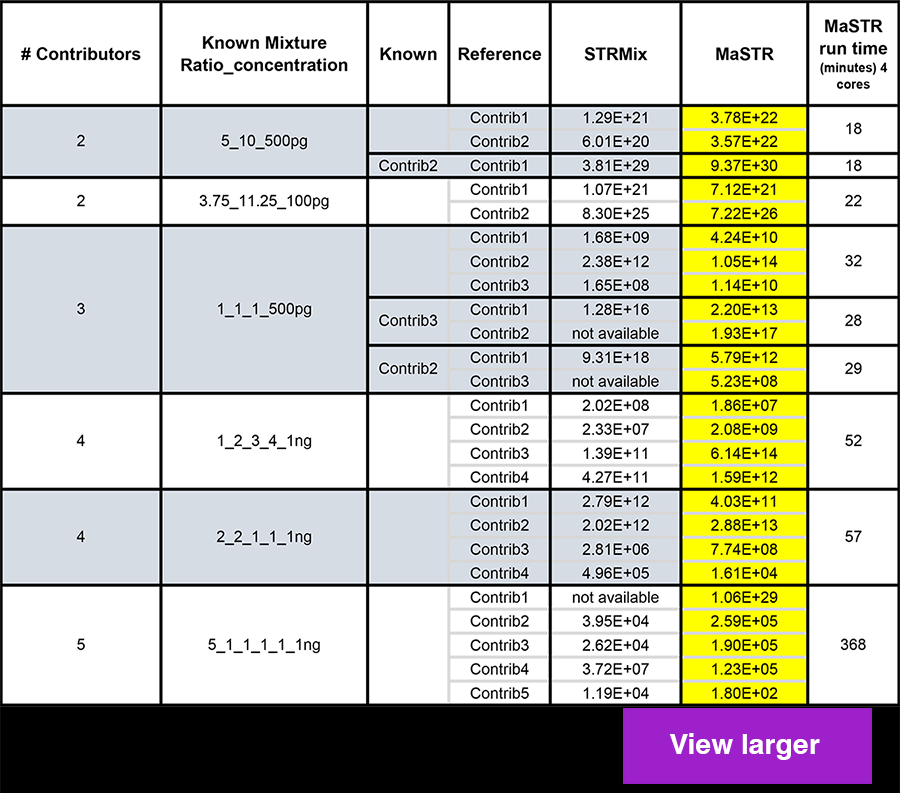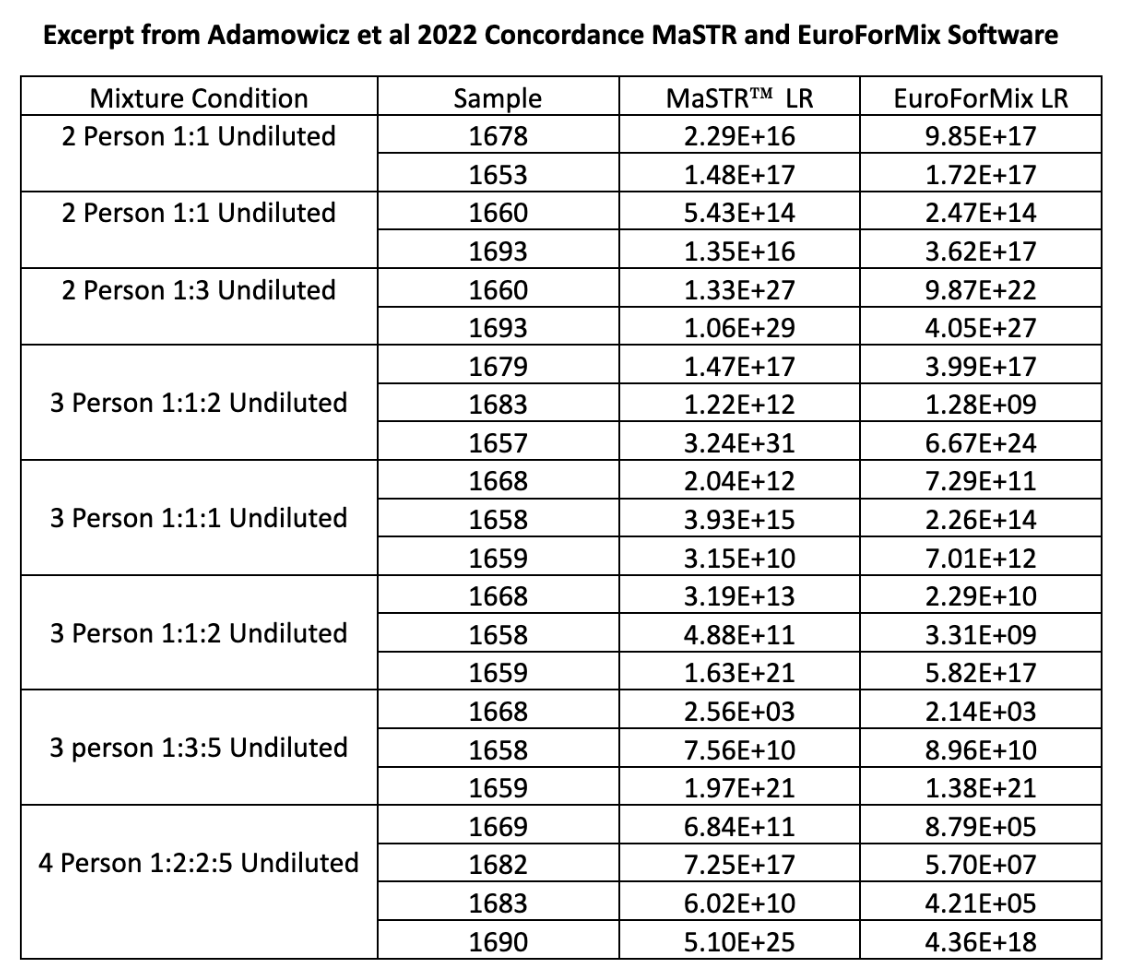Validated / Concordant
Validation of the MaSTR™ probabilistic genotyping software for the interpretation of 2 – 5 person mixed DNA profiles.
Read the validation report in Forensic Science International: Genetics (FSI:G) Supplement Series
Concordance Study Summary: MaSTR™ and STRMix™ Probabilistic Software Programs
Software validation studies by independent researchers are in progress:
Dr. Michael Adamowicz, Director of the Forensic Science program at the University of Nebraska is performing a full validation of MaSTR™ software. Click here to receive a copy of the validation study upon its completion. Prior to heading up the forensic science program at Lincoln, Dr. Adamowicz was a faculty member and forensic science program coordinator at the University of New Haven, Henry C. Lee College of Criminal Justice & Forensic Sciences. During his tenure at the Connecticut State Forensic Laboratory, he served as a supervisor in the DNA unit and managed both nuclear and mitochondrial DNA casework groups. From 2007 – 2009 Dr. Adamowicz was a member of the SWGDAM Mixture Committee developing / writing mixture analysis guidelines.
The forensic community will have access to the validation study upon submission for peer reviewed publication. SoftGenetics will provide the validation data files to laboratories that wish to use it in their initial evaluation of a MaSTR software trial.
Additional independent evaluations:
Dr. Mitchell Holland, Associate Professor, The Pennsylvania State University. Prior to assisting in the development of the Forensic Science Program at Penn State in 2005, Dr. Holland was the Director of both AFDIL (1993-2000) and the Bode Technology Group (2000-2005). He currently serves as the Laboratory Director of Mityptyping Technologies, LLC, a SoftGenetics company. In addition, he has held positions on governmental and company advisory boards (e.g., DMORT and Identigene, Inc), and has been recognized by leading organizations for his work (e.g., the FBI Laboratory and the NY City OCME), including an honorary doctorate from the University of Split in Croatia. Dr. Holland’s research team will carry out a controlled study to model environmental degradation by producing mixed samples with known amounts of degradation through the shearing of DNA to known size ranges. This controlled approach will allow us to ask questions such as what effect would combining two sources of DNA, one pristine and one degraded, have on the interpretation of the mixture profile through MaSTR.















